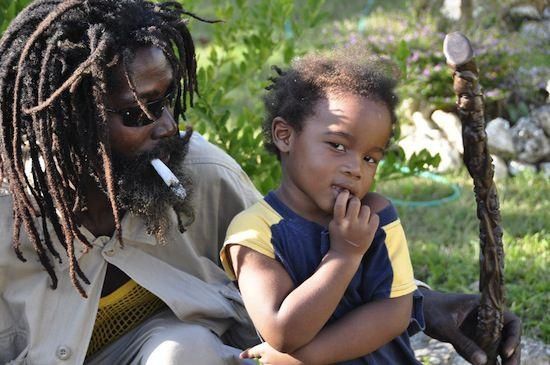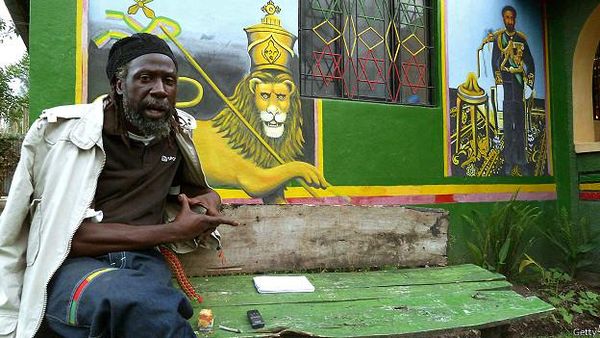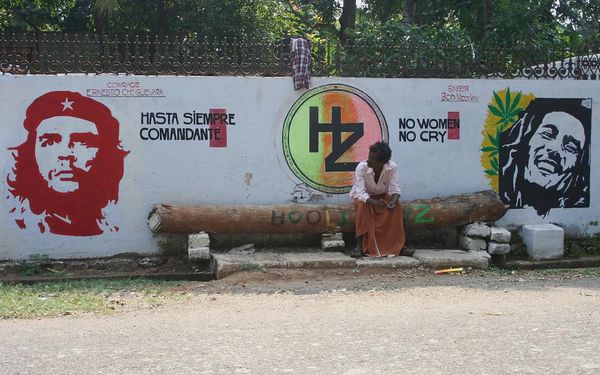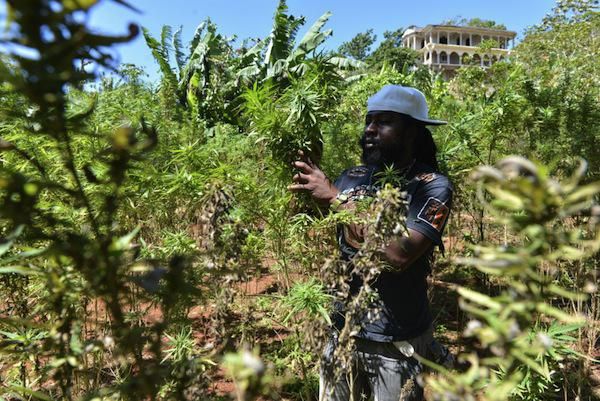- Jamaican politicians have just presented a bill that proposes to decriminalize the possession of small amounts of cannabis for therapeutic use, and gives a green light to the development of an industry capitalizing on its medicinal uses.

Believe it or not, in Jamaica cultivating and buying or selling marijuana has been punishable under the law for more than a century (specifically, since the Ganja Law of 1913). In the popular imagination, however, this country is closely associated with cannabis consumption, whether because the Rastafarian culture arose there, or because the king of reggae was born there, or because, as Usain Bolt himself has recognised, every young Jamaican learns to roll a joint, and tries marijuana at some point in his life.
In spite of all this, ganja continues to be illegal on the island that gave the world Bob Marley. Although illicit cultivation is down since the 60s, many people still grow, showing their plantations to visiting tourists without hesitation. Many visitors relate in detail how, on a kind of tour, they were plunged into a forest of cannabis where, in addition, they had to try the harvest so that their “guides” could be sure that they were not undercover agents.
A few months ago (back in March of 2014) Dinafem explained that Jamaica had begun a struggle to legalize marijuana. Now, after decades of insistence, the Government has given the green light to a bill to legalize the possession of small amounts of marijuana and to promote a legal therapeutic cannabis and industrial hemp industry. Parliamentary approval is required for the measure to take effect, but it already marks an eagerly-awaited step forward.
It is also hoped that this new legal situation will bolster domestic cultivation on a small scale, for which the most common option on the island is to germinate marijuana seeds, using the most locally popular strains.
In 2013 at the international conference that organised the Ganja Law Reform Coalition (in favour of reforming the marijuana law), prime minister Bruce Golding admitted that it was essential to take measures. Spurred by the dramatic advances in some nearby countries, Golding stated that the government would review the issue “in light of recent events” in Latin America. That was almost two years ago.

According to Golding, and the bill that his cabinet has just approved, the authorities will establish a system of licenses to grow, sell and distribute marijuana for “medical, scientific and therapeutic aims”. If the measure is approved those who hold this license will be able to keep up to 56 grams of cannabis, cultivate up to five plants. It also provides for something that would be unprecedented: Rastafarians could use the plant legally for religious purposes, for the first time in the island's history.
Although the Jamaican government has realised that prohibitionist policies have failed, marijuana consumers will not be able to consume in public spaces, which will be expressly prohibited.
With respect to plants cultivated for scientific and research aims, the new law would allow the growing and use of marijuana under the supervision of a body accredited by the Scientific Research Council. The minister responsible for science and technology will also be able to authorise certain institutions or people to grow marijuana for these purposes.

Golding has recognized that Jamaica ought to position itself to take advantage “of the great opportunities that this emergent industry offers,” since, as pointed out by Delano Seiveright, director of the work group for medical research and the commercial use of marijuana in Jamaica, the cannabis industry on the island is lagging far behind other places in the Caribbean.
Last year Kamla Persad-Bissessar, the prime minister of Trinidad and Tobago, and, at the time, acting president of the Community of the Caribbean (Caricom), commissioned from this organization's Secretary General a report addressing the benefits that marijuana legalization could bring to the region. At that time the president of San Vicente, Ralph Gonsalves, warned his countrymen that it was urgent to take measures to “catch the train” before it left the station.
In his letter he observed that the United States was already “way ahead of other countries” in the legitimation, cultivation, research, production and distribution of pharmaceutical and cosmetic products. He also encouraged his counterparts in the area to take measures to together exploit cannabis's medicinal properties and take advantage of its potential to bring greater profits to a potentially multimillion-dollar industry.

In Jamaica plans call for a parliamentary debate to defend this historic law to begin on Friday, 30 January, after the bill is presented to the Senate. Many are aware that legalisation in the Caribbean country could even help the island to overcome the economic crisis that is plaguing it.
In addition, a portion of the revenues from this industry will be earmarked for social, educational and health-related activities, and, specifically, to sponsor a public campaign to educate teenagers about cannabis and drug consumption, and for the financing of scientific research on specific medical uses, as well as to provide additional support for the implementation of a new regulatory system that will govern all the aspects related to the plant on this island.
-------------------



Comments from our readers
There are no comments yet. Would you like to be the first?
Leave a comment!Did you like this post?
Your opinion about our seeds is very important to us and can help other users a lot (your email address won't be made public).